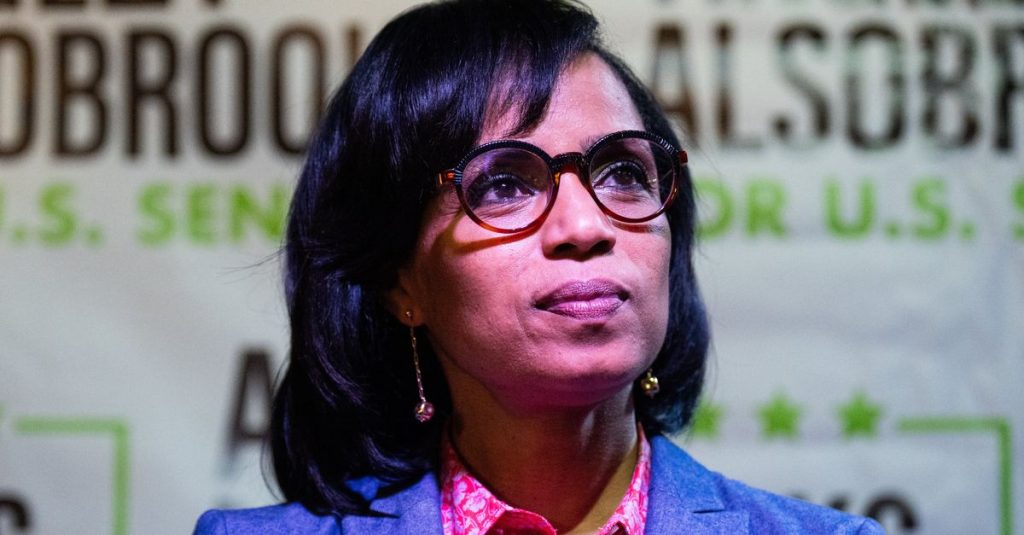Angela Alsobrooks, a county executive from the Washington, D.C., suburbs, has emerged as the projected winner of Maryland’s Democratic U.S. Senate nomination, defeating Rep. David Trone, a liquor store magnate who spent over $61 million of his own money in the campaign. If elected in November, Alsobrooks would make history as the first Black woman to represent Maryland in the U.S. Senate. Currently, there is only one Black woman in the Senate, Democrat Laphonza Butler of California. Democrats have the opportunity to add two Black women to the Senate in November, with Alsobrooks and Lisa Blunt Rochester of Delaware running unopposed.
While Alsobrooks faces a tough challenge in the General Election against former GOP Governor Larry Hogan, who has been successful in deep-blue Maryland due to Democratic crossover votes, her victory in the Democratic primary was significant. Hogan’s entry into the race complicated the dynamics of the Senate contest, turning it from noncompetitive to a potentially endangered seat for the Democrats. The National Republican Senatorial Committee highlighted the contrast between Alsobrooks and Hogan, emphasizing Hogan’s record of bipartisan success in his tenure as governor.
Trone, despite his massive spending and arguments that he would be a stronger opponent for Hogan, did not secure the Democratic nomination. Trone focused on bipartisan measures such as mental health and substance abuse treatment, as well as criminal justice reform, to make his case to voters. On the other hand, Alsobrooks highlighted her work addressing the economy, public safety, and the pandemic as the county executive of Prince George’s County, Maryland. While Trone called for voters to focus on the best candidate regardless of color, the race underscored a sharp divide among Democrats in Maryland, with Trone positioning himself as the outsider against the Democratic establishment supporting Alsobrooks.
The race for the U.S. Senate nomination in Maryland also saw controversy, with Trone facing backlash for his language and messaging. Trone accidentally used a racial slur in a congressional hearing, referred to Alsobrooks’ supporters as “low-level folks,” and faced criticism for an attack ad that implied voters needed to choose a senator who didn’t need “training wheels.” These incidents marred Trone’s campaign, while Alsobrooks focused on organizing and engaging voters across the state. Rep. Jamie Raskin, who endorsed Alsobrooks in the primary, highlighted the significance of the race, emphasizing the power of organizing and overcoming financial disparities.
Overall, Angela Alsobrooks’ victory in the Democratic U.S. Senate nomination in Maryland marks a significant milestone for representation and diversity. If elected in November, she would make history as the first Black woman to represent Maryland in the Senate. In a state where a third of the population is Black, the race tested Democrats’ commitment to diversity and inclusivity. Despite facing a tough challenge from a popular GOP incumbent, Alsobrooks’ campaign demonstrated the power of organizing and connecting with voters on critical issues facing the community.







